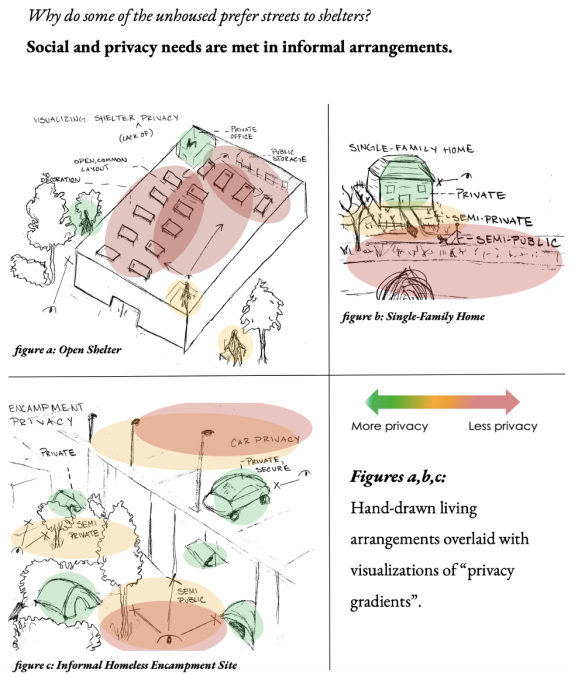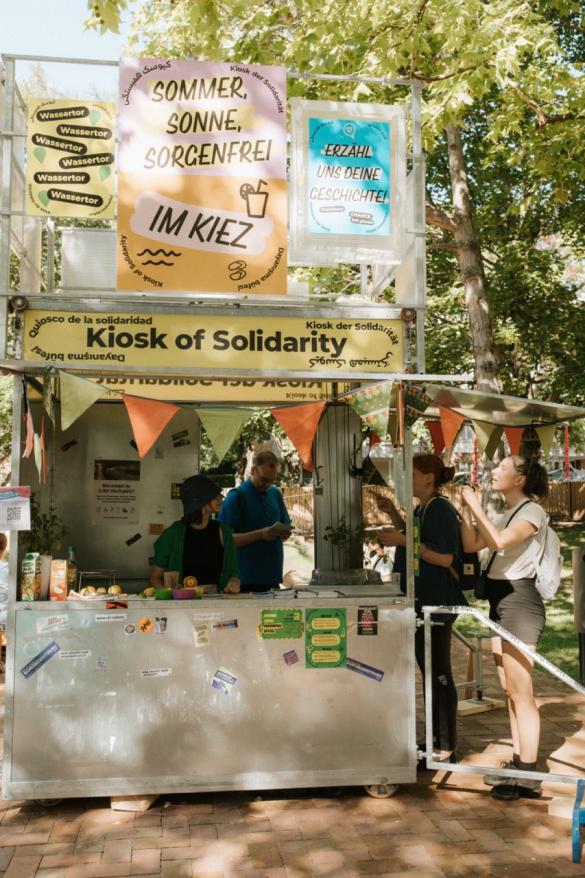Hannah’s Journey at CHC: Exploring the Humanity in Homelessness
By Amy Silbo
Content

Hannah Jury is a UMass Amherst and Honors alum who is currently working on her master's in urban design at the Technical University of Berlin. I had the chance to ask her some questions about her experiences both during and after her time at UMass.
Tell me a little bit about yourself:
I lived in Westfield, Massachusetts my entire life before moving to Amherst to start my undergrad program. I started by studying environmental science because I grew up spending summers in Lamoine, Maine. I just became really tied to the natural environment. I was working on a goat farm and I really thought I was going to go into science, but then I could not do biology or chemistry. The Honors College did a good job showing me the opportunities of doing the BDIC (Bachelor's Degree with Individual Concentration). I was creating my own major in city planning, but then I discovered that we have sustainable community development at the university. I ended up studying that, and that ended up being perfect and exactly what I wanted to do. It was everything I was passionate about, and I loved that program a lot and how integrated it was as well with landscape architecture.
This is another reason why I did appreciate the Honors College; I feel like I've always been interested in everything in many different ways, and I've never been able to really zero in on something. Even as I'm in my master's program, I've chosen a really interdisciplinary program.
What are you doing for your master’s?

I'm at the Technical University of Berlin studying urban design, which is similar to my undergrad program. It combines architecture, regional planning, landscape architecture, and sociology — which is very interesting. That's what I did for my Honors Thesis as well. My master's program is completely interdisciplinary, so you can take studios in all of the different topics — which has been a really great experience.
Are you working right now or are you focusing on school?
I ended up getting a job just doing copy editing for the university I'm at now. It's linked to sociology and space, but they do blogs and publishing for Routledge and all different avenues for academic/more casual writing just related to the sociology of space. I've just been editing for them, which isn't something I would expect to do. I've always written and stuff in all of my classes, but that's never been a complete focus, but it is something I really appreciate, especially after being involved in more architectural classes. It's nice to have an outlet to use my writing a little bit more.
While at UMass, I also worked at Texas Roadhouse, and just a bunch of those places. I also worked at the Mullins Center for a little bit. I had a lot of those random little jobs. I'm lucky I have the DAAD scholarship, so I don't need to get a job at a restaurant or something like that.
Can you tell me more about the DAAD Scholarship? How did you apply for it?
It's in German, so I'm not going to be able to say it, but it stands for German Academic Exchange Service. I found out about it through the International Scholars Program (ISP) through the director of ISP, Madalina Akli. I had never been to Berlin or Germany before. It was just the best scholarship or way to be able to do my master's internationally.

Madalina really encouraged me. She was like, "It doesn't matter if you haven't been connected to it in the past; you're passionate about what you want to study and that's important." The scholarship also recognized that, which was very nice.
The process for applying to that is definitely a lot. It was in September or October that I decided I wanted to do it. The application process was a crazy experience, but Madalina and the whole UMass administration were really helpful through that process.
I feel like things like the Honors College really, especially in that experience, helps make such a big university feel smaller. There's a graduate program I would've gone to at UMass, and it was really nice that they still just saw my dream and even in such a big school, they wanted to help me see the scholarship through and do it.
How would you describe your experience being in the International Scholars Program ?
Being in the International Scholars Program was a wonderful experience. I started that before I even knew I was going to do sustainable community development. Madalina saw my trajectory and she really encouraged me to study abroad. Being in the ISP encouraged me to study abroad in Spain, and I became passionate about traveling and experiencing things outside of America, and now I'm in Berlin doing my master's.

What aspect of the CHC curriculum do you believe was the most beneficial?
I think the opportunity to take master's courses was the most beneficial for me. I don't think I would've gotten into the programs I got into, or the scholarship I got, if I hadn't been able to really get into the regional planning master's curriculum at UMass.
I think different programs like the International Scholars Program or the Civic Engagement & Public Service (CEPS) program, with curriculum that carries the students throughout the years is really nice. I've always found that while it's important to do interdisciplinary things, having a consistent track that follows you throughout the years with the same students and same professors is... I feel like those students always ended up feeling more connected to the Honors curriculum and found it more beneficial.
Can you talk a little bit about your Honors Thesis and the topic that you chose?
I was in one of the seminars, which I didn't think I was going to do either, and I'm really glad I did. It was Evolution and the Meaning of the American Home, which was taught by an architecture professor but we had students from biomedical engineering, and psychology, and pre-med and just all of the backgrounds. Initially I thought I was going to do my Thesis on transportation or tourism, which is what I'd always done individual projects on, but I decided to switch it up a little bit because the issue was weighing very heavily on me, and I ended up focusing on homelessness.


The title of my Thesis was “Maslow’s Hierarchy of Needs: A framework for deeper understandings of and support for the unhoused.” I wanted to experiment with changing what we considered a home to be. I focused on Maslow's Hierarchy of Needs, which was a psychological and sociological theory, and then applied it to seeing how we can better implement resources and services for unhoused people in Western Mass. I took little case studies from all over the world and all over the country to see why aren't people staying in shelters if there's beds in them? Then it came down to concerns of privacy and how can we best meet the social needs of unhoused members, too.
We have a problem with over-prioritizing emergency resources or practical resources, which perpetuates a spiral into more chronic or serious unhoused conditions. But if we try to meet the social, or transportation, or emotional, or privacy needs earlier on, it can help people stay in a better condition.
But what I found about talking with all of the people from the different backgrounds in my classes and just in general, every discipline is related to this issue.
Would you say that you've become more involved in the homelessness issue that we're having all around the world due to examining that topic in your Thesis?

I feel like it's really helped me change the way I think and talk about all political issues that are quite sensitive like that. It's hard because doing it has made me want to become more involved, but it's also made me very aware of the way that I know how to be involved is in the academic realm. It feels very removed and wrong almost, but then that's what I'm doing. It's tricky. I was becoming really, really engaged in the individual stories. It was just so hard to think that anything else was important.
Something that I've been wanting to do a lot with my master’s is break down the barriers to academic discourse, and how pretentious it can be, and how can we really change that theory into something practical for such an urgent issue.

What advice would you give to current CHC students?
I would say to not take anything too seriously. That was something I always had a better relationship with the professors of my Honors courses. They honestly always seem to be more chill with the grading, which is opposite of what you would think. But I feel like the Honors courses really emphasized being academically curious and just helping each other out. That really helped me find what I'm passionate about versus the gen ed courses — as they were so structured, and you're encouraged to take things more seriously. There's not as much room to really figure out what makes you curious about something and have casual conversations with your professors and fellow students.
Honestly, I feel like just not taking anything too seriously, it will all work out no matter what.
It's important to work hard, but I feel like people who have ended up in the Honors College, they get that and it makes the [CHC] experience better for yourself and everyone if you’re able to really try and understand what’s important to you and what you’re passionate about.
